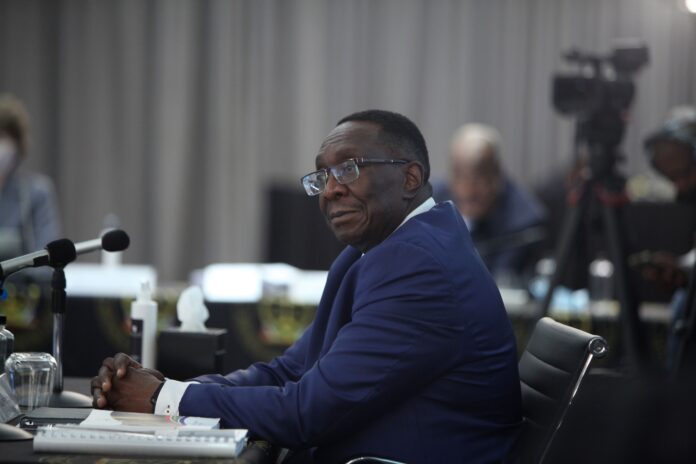Judge President Dunstan Mlambo has warned against the judiciary engaging in public spats with politicians and advised on dealing with political attacks through structured talks between government leaders.
Mlambo was responding to a question from Minister of Justice and Constitutional Development Mamoloko Kubayi during interviews for the position of Deputy Chief Justice.
Politicians attack on judiciary
Kubayi asked Mlambo whether he believed political parties were behind some of the ongoing attacks on the judiciary, and how the judiciary should respond to criticism.
“You shied away from mentioning that it is from political parties that you find the attack to the judiciary most of the time… How do you see the interface between the judicial and political parties in the country? And to ensure that we are able to find each other in a single system that is in the best interest of South Africa?” questioned Kubayi.
Mlambo agreed that he had avoided naming political players. But he defended the need for judiciary, the executive, and the legislature.
He highlighted that the judiciary cannot respond to every political statement coming up. And he suggested that concerns raised by the judiciary should be taken to the executive or legislature, or vice versa.
Counter-revolutionaries label
Mlambo recalled the case involving Sudanese President Omar Al-Bahir, when the government failed to arrest him despite a court order. He said a meeting between the president and the chief justice at the time helped to calm the built-up tensions.
“You can’t then have political heavyweights calling judges counter-revolutionaries. So, I’m saying that is one aspect that one can use to diffuse these things at that level. Because you can’t expect the judiciary to respond to individual statements comping up.
“The engagement can go a long way into diffusing these situations. That would be my answer to you,” said Mlambo.
Machini Motloung, founder of Machini Motloung Inc Attorneys, raised concerns about financial challenges facing citizens who need to access courts. He said it is an impediment and barrier to accessing justice.
Defending the vulnerable
He emphasised the issue of needing money to access the courts might imply that the Constitution is not working.
Mlambo said there have been instances were the vulnerable have been assisted with their cases without funding.
He referred to a case of a car dealership that would sell one car to multiple customers. The litigants in this matter were assisted free of charge, he added.




